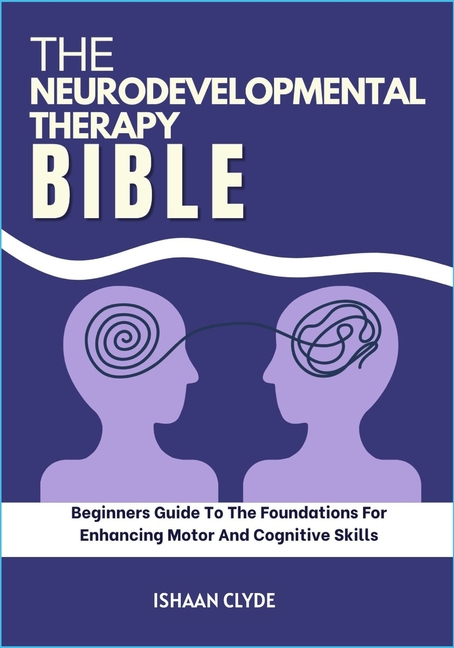Description
Neurodevelopmental Therapy (NDT), also commonly known as the Bobath Approach, is a specialized therapeutic method designed primarily for individuals with neurological impairments affecting their motor development and function. Originally developed in the mid-20th century, NDT has since become a foundational treatment approach in pediatric and adult rehabilitation, especially for patients with cerebral palsy, stroke, traumatic brain injury, and other central nervous system (CNS) disorders.
At its core, NDT is a problem-solving, hands-on approach that focuses on facilitating normal movement patterns while inhibiting abnormal muscle tone and reflexes. The therapy addresses the complex interplay between the nervous system and motor function, aiming to optimize the individual's ability to perform meaningful activities and improve overall quality of life. It integrates principles of motor learning, neuroplasticity, and biomechanics, emphasizing the brain's ability to reorganize and adapt in response to targeted therapeutic interventions.
Since its inception, NDT has evolved with advances in neuroscience, motor control theories, and rehabilitation sciences. It is now applied not only to children with developmental motor disorders but also extensively to adults recovering from acquired neurological injuries such as stroke or brain trauma. Contemporary NDT practitioners incorporate a deeper understanding of neuroplasticity-the brain's capacity to reorganize neural pathways-to promote recovery and functional improvement.
Principles and Philosophy:
Neurodevelopmental Therapy is grounded in several key principles that differentiate it from other rehabilitation approaches:
- Holistic, Individualized Care: NDT recognizes that each patient has a unique neurological profile, functional needs, and goals. Therapy is customized to address specific impairments and to maximize the individual's potential within their environmental and personal contexts.
- Facilitation of Normal Movement Patterns: The therapist uses precise, hands-on techniques to guide the patient through movements that resemble typical motor patterns, encouraging the central nervous system to learn and adopt more efficient motor control.
- Inhibition of Abnormal Tone and Reflexes: Many neurological impairments result in spasticity, rigidity, or reflex abnormalities that interfere with voluntary movement. NDT seeks to reduce these involuntary responses through targeted handling and positioning.
- Active Participation and Functional Relevance: The therapy emphasizes active patient engagement and aims to improve movements that translate into meaningful, everyday activities such as sitting, standing, walking, or self-care.
- Integration of Sensory Feedback: Sensory input is crucial for motor learning. NDT techniques enhance sensory awareness and processing to improve motor planning and execution.
- Use of Neuroplasticity Principles: By repetitively practicing correct movement patterns and providing appropriate sensory feedback, NDT leverages the brain's plasticity to remodel neural circuits and improve motor function.
Nonetheless, NDT remains highly valued for its individualized approach, therapeutic handling skills, and ability to address complex neurological impairments holistically. Ongoing research and clinical innovation continue to refine its techniques and application.
At its core, NDT is a problem-solving, hands-on approach that focuses on facilitating normal movement patterns while inhibiting abnormal muscle tone and reflexes. The therapy addresses the complex interplay between the nervous system and motor function, aiming to optimize the individual's ability to perform meaningful activities and improve overall quality of life. It integrates principles of motor learning, neuroplasticity, and biomechanics, emphasizing the brain's ability to reorganize and adapt in response to targeted therapeutic interventions.
Since its inception, NDT has evolved with advances in neuroscience, motor control theories, and rehabilitation sciences. It is now applied not only to children with developmental motor disorders but also extensively to adults recovering from acquired neurological injuries such as stroke or brain trauma. Contemporary NDT practitioners incorporate a deeper understanding of neuroplasticity-the brain's capacity to reorganize neural pathways-to promote recovery and functional improvement.
Principles and Philosophy:
Neurodevelopmental Therapy is grounded in several key principles that differentiate it from other rehabilitation approaches:
- Holistic, Individualized Care: NDT recognizes that each patient has a unique neurological profile, functional needs, and goals. Therapy is customized to address specific impairments and to maximize the individual's potential within their environmental and personal contexts.
- Facilitation of Normal Movement Patterns: The therapist uses precise, hands-on techniques to guide the patient through movements that resemble typical motor patterns, encouraging the central nervous system to learn and adopt more efficient motor control.
- Inhibition of Abnormal Tone and Reflexes: Many neurological impairments result in spasticity, rigidity, or reflex abnormalities that interfere with voluntary movement. NDT seeks to reduce these involuntary responses through targeted handling and positioning.
- Active Participation and Functional Relevance: The therapy emphasizes active patient engagement and aims to improve movements that translate into meaningful, everyday activities such as sitting, standing, walking, or self-care.
- Integration of Sensory Feedback: Sensory input is crucial for motor learning. NDT techniques enhance sensory awareness and processing to improve motor planning and execution.
- Use of Neuroplasticity Principles: By repetitively practicing correct movement patterns and providing appropriate sensory feedback, NDT leverages the brain's plasticity to remodel neural circuits and improve motor function.
Nonetheless, NDT remains highly valued for its individualized approach, therapeutic handling skills, and ability to address complex neurological impairments holistically. Ongoing research and clinical innovation continue to refine its techniques and application.
Last updated on
Product Details
- Jun 27, 2025 Pub Date:
- 9798289935632 ISBN-10:
- 9798289935632 ISBN-13:
- English Language




